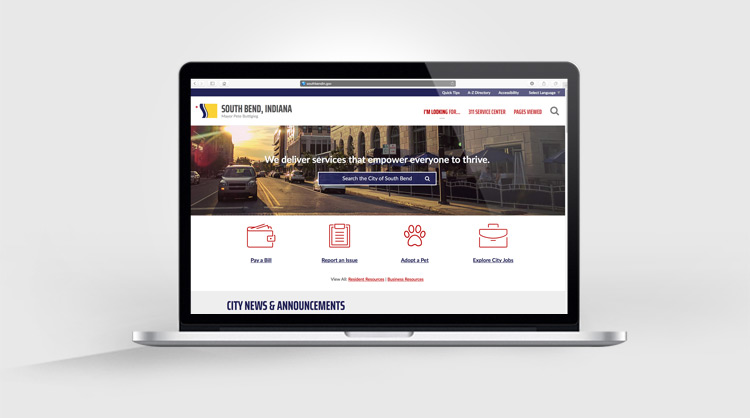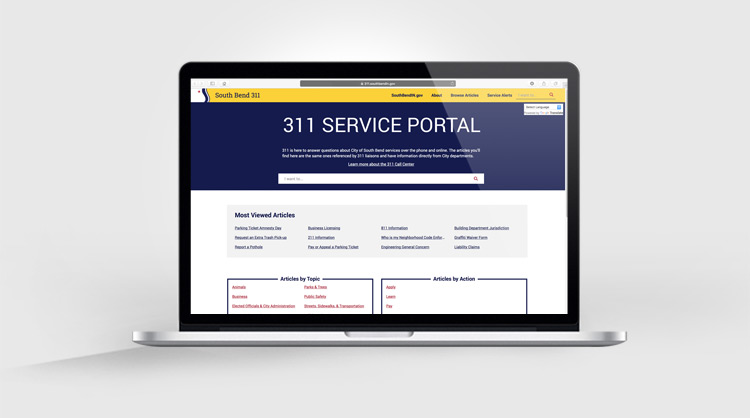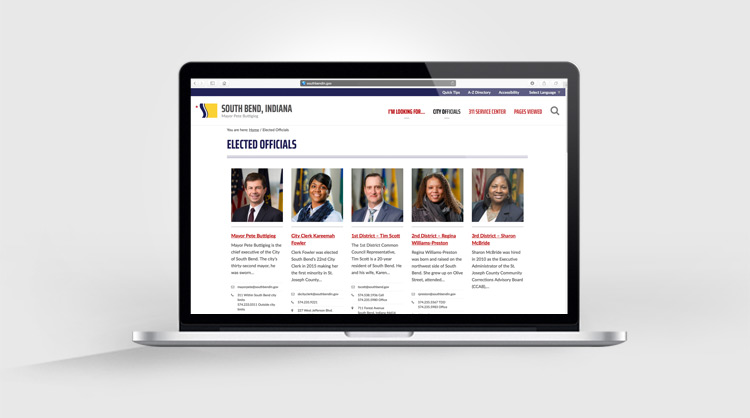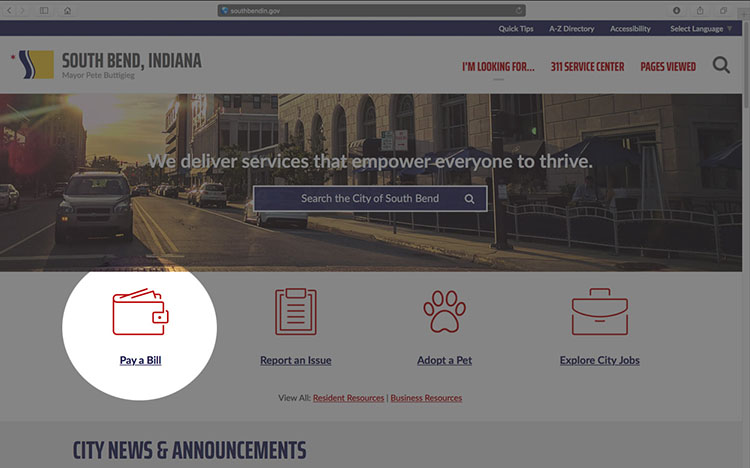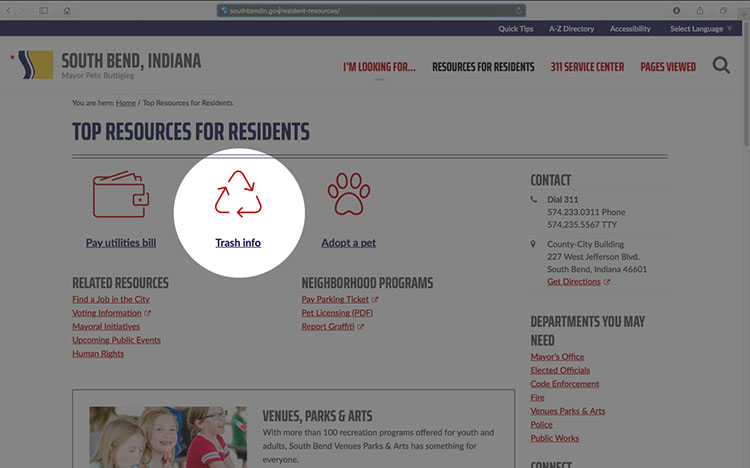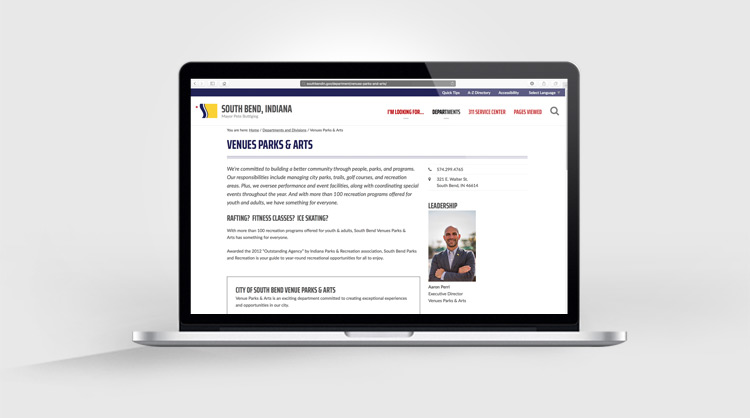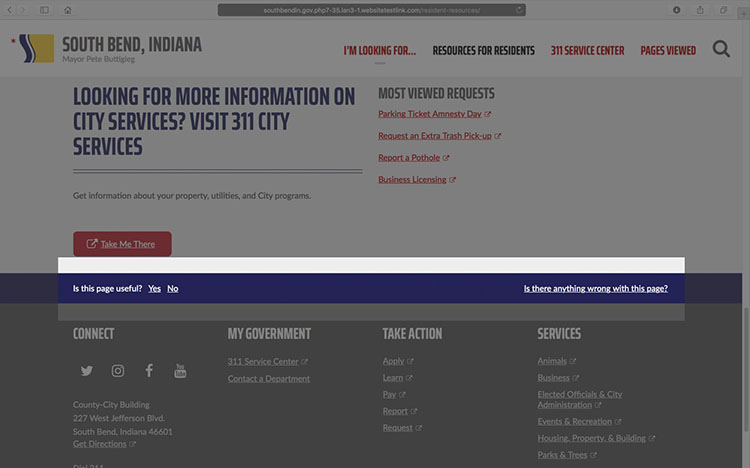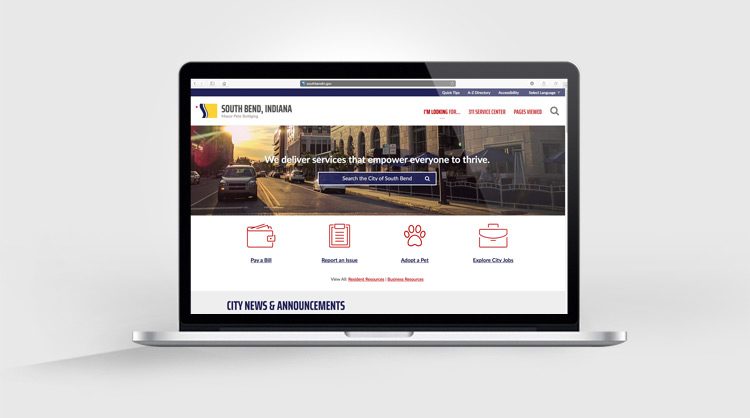Learn about the City of South Bend’s public safety technology upgrades and provide feedback on proposed data policies.
During September/October 2022, this page was used to gather online feedback on three South Bend Police Department data policies. Feedback from the online form, 10/4 Community Action Group (CAG) meeting, and expert review were used to edit the policies. The policies were approved at the November 2022 Board of Public Safety Meeting and final versions are available on the Police Transparency Hub.
The South Bend Police Department (SBPD) is using American Rescue Plan dollars to upgrade public safety technology. These upgrades include setting up a Real Time Crime Center (RTCC), expanding the City’s public camera network, and strengthening South Bend’s camera registry program. In light of these projects, SBPD is proposing two draft policies and providing a related existing policy that will shape the technology upgrades:
- Policy 334: Public Safety Video System Policy (Draft)
- Policy 343: Facial Recognition Technology (FRT) Policy (Draft)
- Policy 427: Automated License Plate Reader (ALPR) Policy (Existing)
We want to hear your feedback and questions about the policies. Feedback will be incorporated before the policies are finalized. Learn more about the policies and provide feedback below!
Want to know more about how SBPD will use the Public Safety Video System?
Want to know more about how SBPD will use Facial Recognition Technology?
Want to know more about how SBPD uses License Plate Reader Technology?
Have feedback or questions you want to share about the policies?
Guiding Policy Principles
- Transparency: We want policies to be open to the public, public questions, public feedback.
- Accountability: We want policies to be easily operationalized and enforced.
- Clarity: We want policies to be clear and understandable to all.
- Respect: We want to respect residents as well as the limitations of technology (ex: FRT) and not unduly lean on it given the fact it is not perfect.
Attend Meetings
Frequently Asked Questions (FAQs)
This FAQ section is dynamic and we will add to it to based on questions that arise in the feedback form or at the CAG meeting.
Facial Recognition Technology
What is Facial Recognition Technology (FRT)?
FRT is a biometric software application that is able to uniquely identify or verify a person by comparing and analyzing patterns based on the person’s facial contours.
FRT is used by the public sector for public safety purposes, but also by the private sector for consumer use (ex: unlocking a smart phone, grouping photos).
In the current draft FRT policy, under what circumstances can FRT be used?
Facial recognition technology can only be used when there is reasonable suspicion that such use will provide information relevant to an active or ongoing Part 1 Violent Crime investigation (robbery, sexual assault, aggravated assault, or murder).
Will all captured videos be routinely put through FRT? Will FRT be used in live time?
No to both questions. Not all video footage is put through FRT – there has to be cause and an authorized request. FRT will also not be used on live video. Use of FRT to identify a person is requested after the fact for specific circumstances.
How will results from FRT be used? Are matching photos grounds for arrest?
Information received through FRT is lead only. It is not a basis for probable cause and will not be used as evidence when obtaining a search or arrest warrant.
Will SPBD rely solely on FRT for identification?
No. FRT serves a single tool within SBPD’s toolkit. Even after a captured image is run through FRT results still must be analyzed by an authorized investigative officer.
Other Policy Questions
Do these policies apply to the Body Worn Cameras?
No. There is a separate Body Worn Camera Policy (Policy 424).
Does the RTCC and presence of more cameras eliminate the need to call in about crimes?
No. Residents should still put in calls for service.
When will the three policies be finalized?
This depends on resident engagement. Right now, we anticipate that the three policies above will be finalized in November of 2022.

